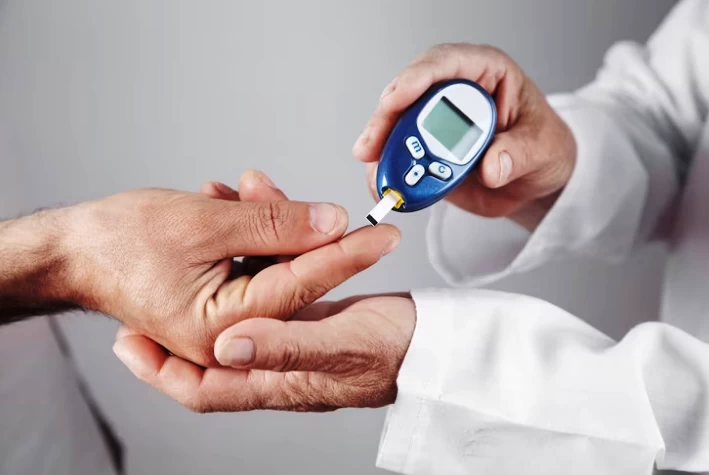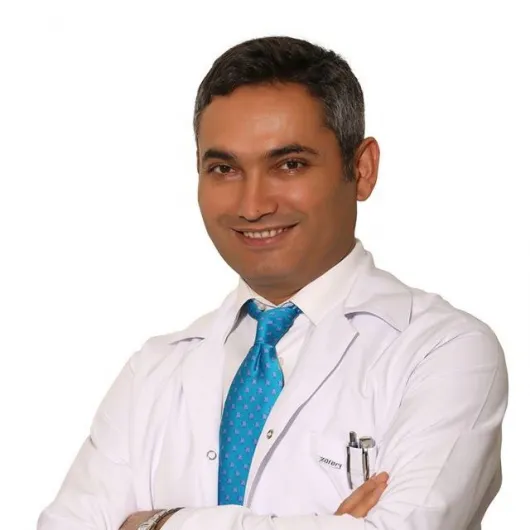
Diabetes is a Treatable Disease: Surgical Approaches to Diabetes
- Diabetes is a Treatable Disease: Surgical Approaches to Diabetes
- What is Diabetes?
- Types of Diabetes:
- Surgical Treatment of Diabetes:
- The Role of General Surgeons in the Treatment of Diabetes:
- Conclusion:
Diabetes has become an increasingly prevalent health issue in today's world. Both Type 1 and Type 2 diabetes can lead to metabolic disorders and abnormal increases in blood sugar levels. In this article, I will focus on surgical treatment options for diabetes and discuss the role of general surgeons in this field.
What is Diabetes?
Before delving into the surgical aspects, it's helpful to briefly recall what diabetes is. Diabetes mellitus is a condition where the body cannot regulate blood sugar (glucose) levels properly. It is often associated with a deficiency in the insulin hormone, the ineffective use of insulin by cells, or a combination of both. Insulin is a hormone secreted by the pancreas, facilitating the transport of blood sugar to cells for energy production.
Types of Diabetes:
There are two main types of diabetes:
- Type 1 Diabetes (Juvenile Onset): Typically appearing in childhood or young adulthood, Type 1 diabetes results from the autoimmune destruction of beta cells in the pancreas, which produce insulin. Individuals with Type 1 diabetes usually require lifelong insulin supplementation.
- Type 2 Diabetes: Commonly emerging in adulthood, Type 2 diabetes involves the body's inability to use insulin effectively or insufficient insulin production. Various factors, including obesity, genetic factors, and lifestyle choices, are often associated with Type 2 diabetes.
Symptoms of diabetes include excessive thirst, frequent urination, extreme hunger, weight loss, fatigue, blurred vision, and problems with wound healing. It is crucial to consult a healthcare professional when these symptoms are observed.
Treatment typically involves lifestyle changes, diet, exercise, and medications. Individuals with Type 1 diabetes usually require lifelong insulin supplementation. For those with Type 2 diabetes, treatment often begins with lifestyle modifications but may also involve medications and insulin supplementation. Recent technological advancements offer the possibility of overcoming diabetes.
Untreated diabetes can lead to serious complications, including heart disease, kidney problems, eye issues, nerve damage, and other health problems. Therefore, early diagnosis and effective management of diabetes are crucial.

Surgical Treatment of Diabetes:
Metabolic Surgery: In contemporary medicine, metabolic surgery is gaining popularity as a surgical treatment for Type 2 diabetes associated with obesity. These surgical interventions aim to accelerate weight loss in obese individuals, reduce insulin resistance, and improve blood sugar control. Procedures such as gastric bypass and gastric banding form the foundation of metabolic surgery.
Pancreatic Surgery: Severe forms of diabetes are often associated with pancreatic involvement. Conditions requiring surgical intervention may include pancreatitis, tumors, or cysts. General surgeons with expertise in pancreatic surgery aim to enhance patients' quality of life through these interventions.
The Role of General Surgeons in the Treatment of Diabetes:
General surgeons play a significant role in diabetes surgery. Their responsibilities include evaluating patients, determining surgical options, and managing postoperative follow-up processes. It is also essential to assess the appropriateness of surgical interventions, considering the overall health status of patients.
Conclusion:
Surgical options have become a significant treatment approach in the field of diabetes, thanks to advancements in modern medicine. Methods such as metabolic surgery and pancreatic surgery are effective approaches employed by general surgeons in the treatment of diabetes. However, each patient is unique, so surgical treatment options should be personalized based on individual circumstances and needs. Patients should consult with a healthcare professional before considering such surgical options.

Op. Dr. Kadir Dicle
General Surgeon





